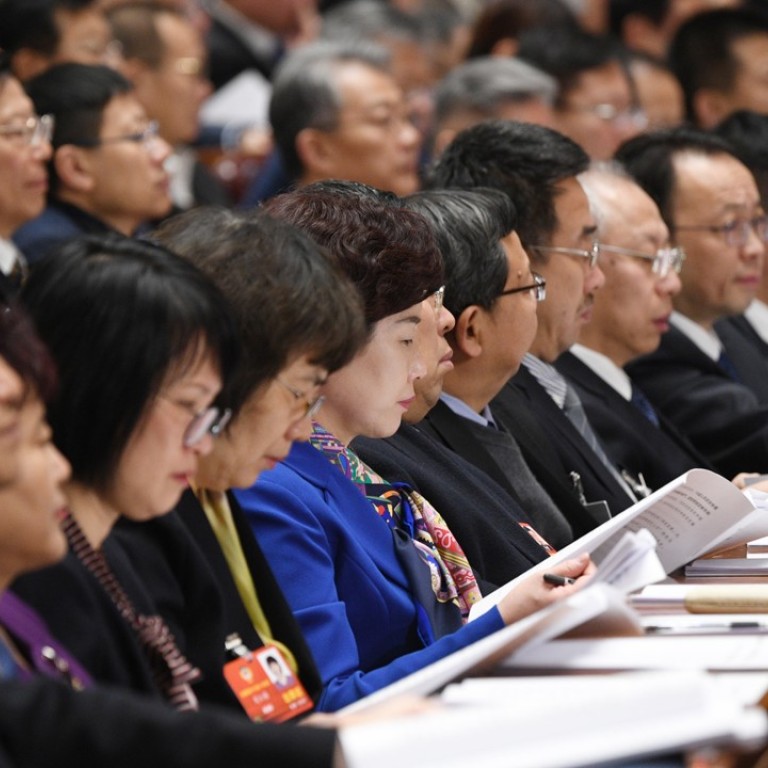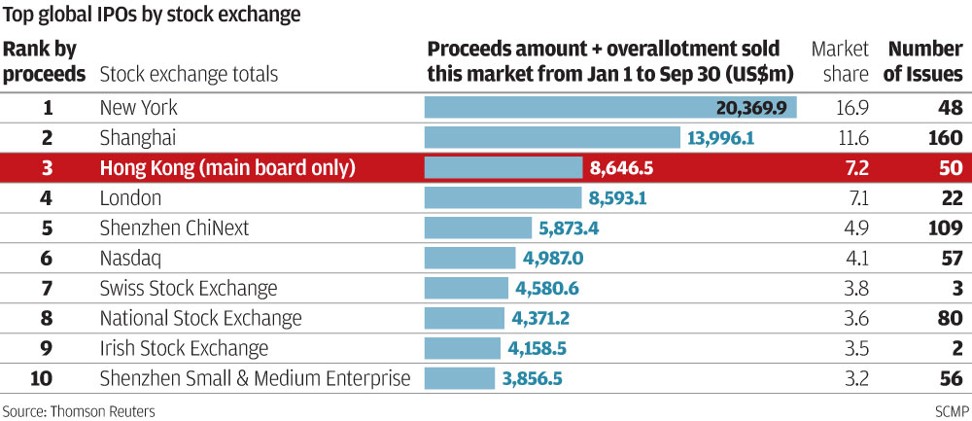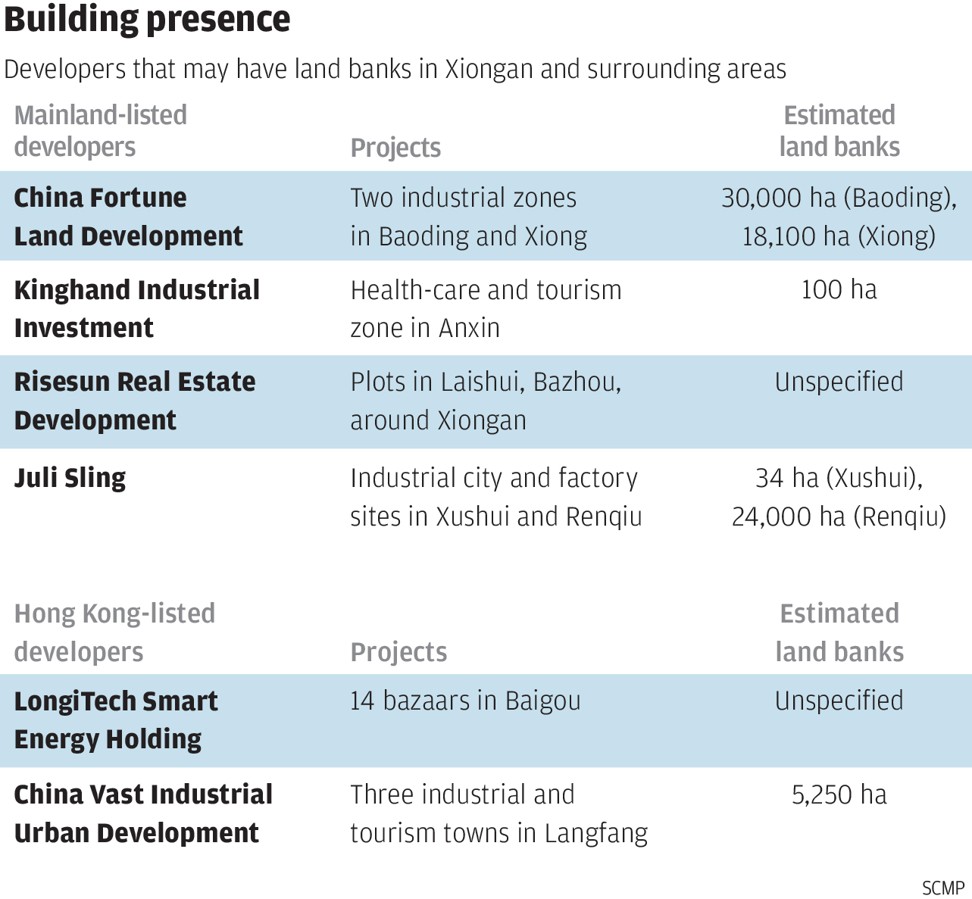
From CDRs to Xiongan, here are the hot topics for China’s business titans at nation’s political meeting
From fighting poverty to cutting corporate taxes, some of China’s most prominent businessmen brought their best ideas to one of the nation’s most important political gatherings.
The annual meetings of China’s legislature and political advisory body provided executives from companies including Tencent Holdings and automaker Zhejiang Geely Holding Group with a platform to lobby for policies and show their support of government initiatives. Here’s where corporate leaders stand on the top issues that came out of the National People’s Congress in Beijing, which wraps up this week.
- Stock Market Homecoming
Tech executives led a chorus of companies eager to bring their overseas stock listings to China’s market. Regulators are considering rules that would allow foreign-listed Chinese companies to trade on the mainland market in the form of Chinese Depository Receipts. Some of the nation’s largest companies, including Alibaba Group Holding and Baidu, don’t trade locally.
“We’ve always had a dream to be listed back in China,” said Robin Li, chief executive officer of Baidu. Yao Jinbo, CEO of Craigslist-style service 58.com, and Wang Xiaochuan, founder of search engine Sogou, were among executives who said they support bringing their listings home.
- New Age of Autos
Many executives sought to nudge China in the global race to make cleaner, smarter cars. The country’s drive to curb pollution and reduce dependence on imported oil, coupled with generous government subsidies, has made it the world’s biggest and fastest-growing market for electric vehicles. China also aims for 10 per cent to 20 per cent of vehicles to be highly autonomous by 2025.
Li Shufu, founder of Zhejiang Geely, said his company plans to have new-energy vehicles accounting for 90 per cent of its total sales by 2020.
Wang Fengying, general manager of Great Wall Motor, China’s biggest SUV maker, suggested China should remove unreasonable market access limitations imposed by local governments on makers of electric vehicles.
Baidu’s Li appealed for policy support to allow companies to test fleets of driverless cars in urban areas, and for building smart roads and infrastructure that aid autonomous driving.
- Propping Up the Poor
Reducing poverty is a top priority for President Xi Jinping, and the mission received enthusiastic endorsements from corporate executives. Many at the NPC offered to leverage their business to help achieve the government’s goals on poverty.
Richard Liu, CEO of e-commerce giant JD.com, pledged continued investment for villagers in poverty-stricken regions, including the deployment of new technologies such as drones to solve logistics issues.
Liu Yonghao, president of conglomerate New Hope Group, said companies should receive tax and other incentives to help fight poverty, citing his own company’s initiative to recruit poor farmers to raise pigs.
Hui Ka Yan, founder of developer China Evergrande Group, spoke about how his company helped build up production hubs of vegetables, fruits and cattle in an economic backwater in the south-western corner of China.
- Tax Talk
Business delegates also used the NPC to broadcast their ideas on personal and corporate income, as well as weigh in on the debate surrounding property tax.
Dong Mingzhu, chairwoman of Gree Electric Appliances of Zhuhai, told reporters she believes China should raise the exemption threshold of personal income tax to allow households to keep more of their earnings.
Wang Tian, chairman of retail franchise Better Life Commercial Chain, suggested cutting corporate income tax by 5 percentage points to help boost growth, local media reported.
Zhang Li, executive director of Guangzhou R&F Properties, advised against levies on people’s first homes, and only taxing residences bigger than 160 square meters (1,722 square feet), according to local media.
- Development Zones
Corporate executives from across the country chimed in on how to develop China’s two biggest new regional projects, the Xiongan New Area special economic zone in northern Hebei and the Greater Bay Area around the southern Pearl River Delta.
Pony Ma, Tencent’s chairman, urged the launch of an ID system that would link multiple sets of travel documents with a mobile phone as part of a plan to boost regional trade between Hong Kong and the mainland.
Kenneth Fok Kai-Kong, a grandson of late Hong Kong billionaire Henry Fok Ying-tung, suggested hosting international sports events to help the integration of the Greater Bay Area, Chinese media reported.
Baidu’s Li proposed setting competitive tax levels and other favourable policies in the Xiongan New Area to attract top global companies and talent.



